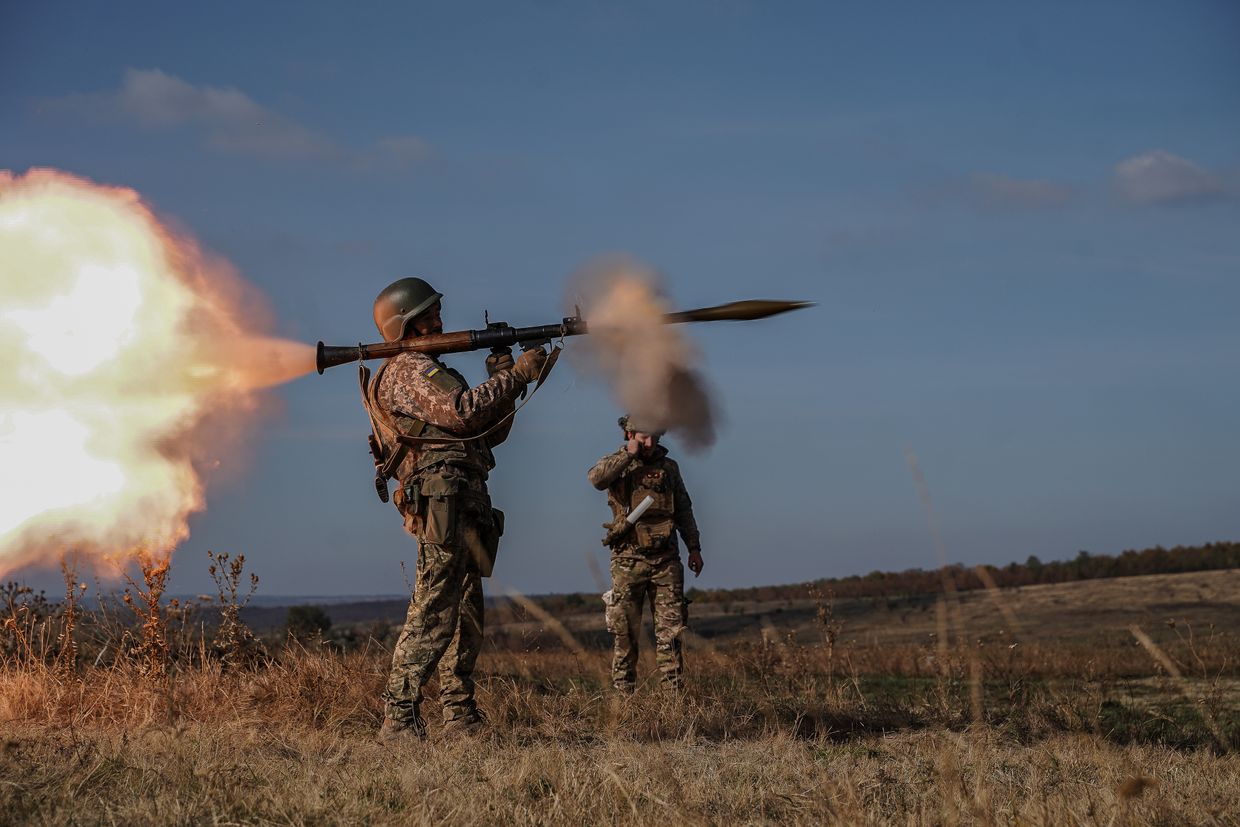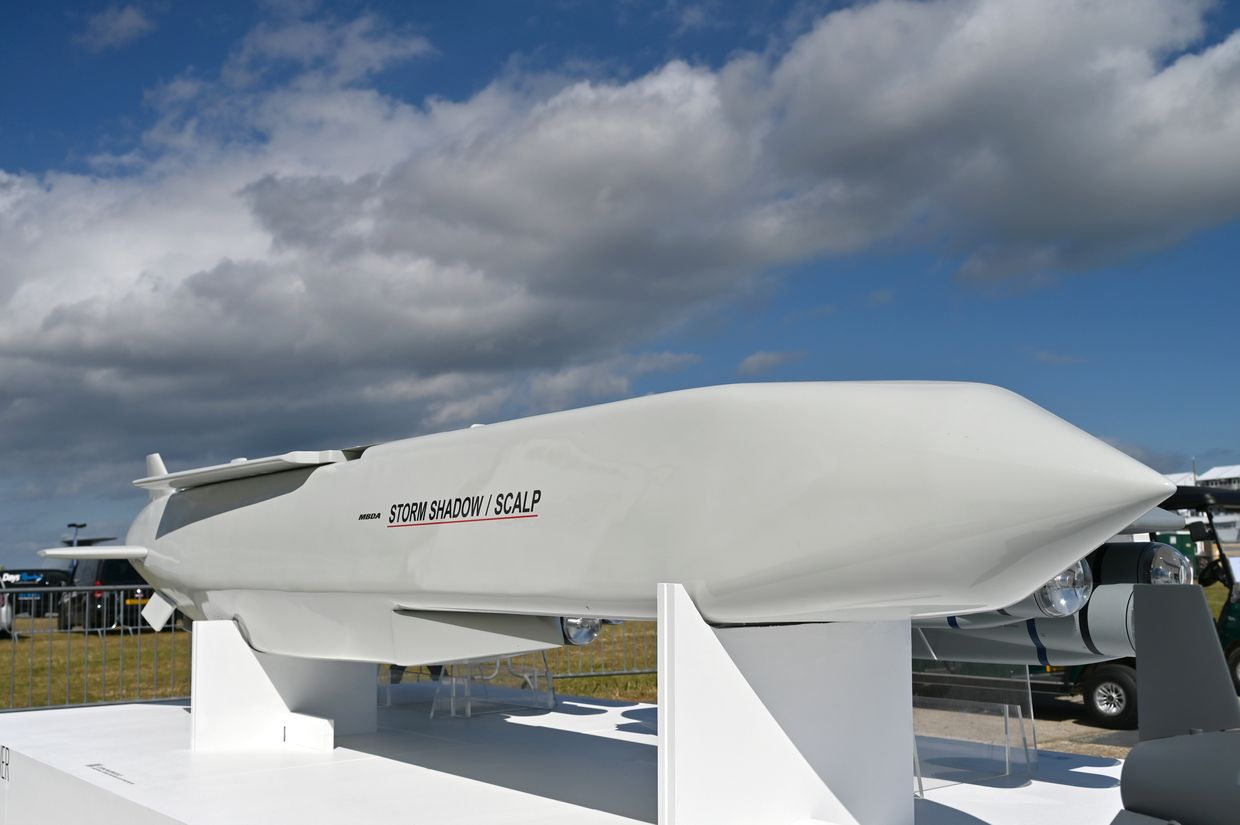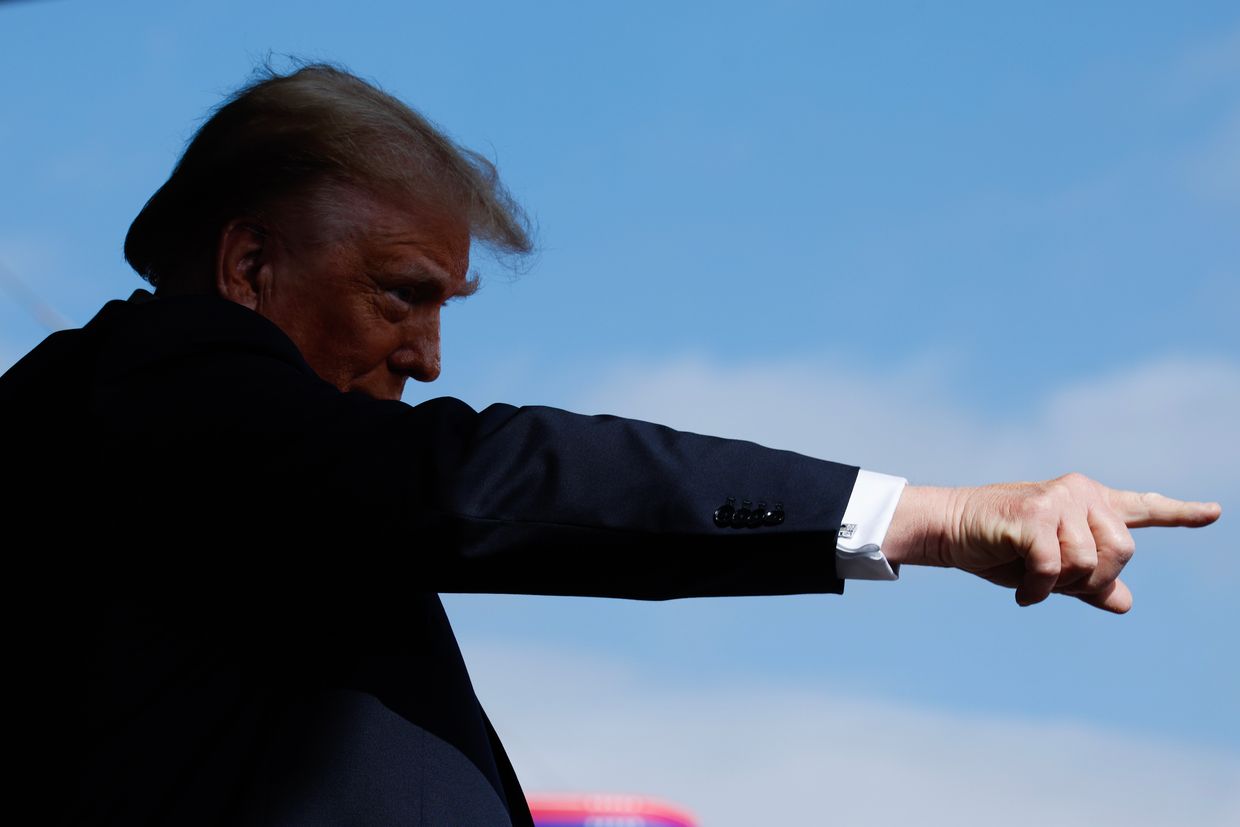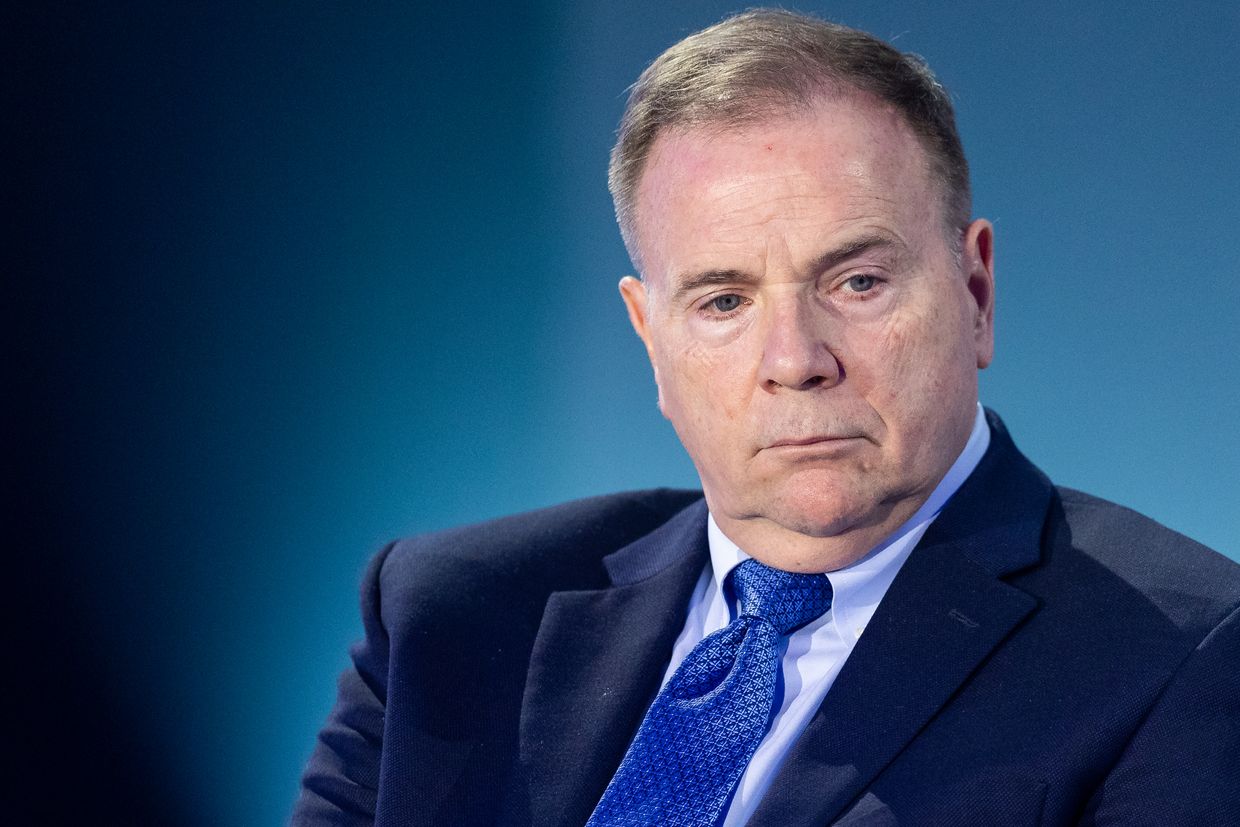The first reports of Ukraine striking deep inside Russia with U.S.-supplied ATACMS emerged on Nov. 19, marking a long-awaited shift in White House policy that could bolster Ukraine’s defense against a 50,000-strong joint Russian-North Korean force assembled against them.
President Joe Biden’s decision to finally grant Kyiv permission to use ATACMS is likely one of the last significant contributions to the war in Ukraine before Donald Trump takes up residence in the White House on Jan. 20.
With election promises of ending the war in “24 hours,” and cabinet appointments marked equally by inexperience and disdain for the fate of Ukraine, a Trump-led U.S. will have a profoundly different stance towards Kyiv than the previous administration.
A few hours before reports of the strikes in Bryansk Oblast, the Kyiv Independent sat down with retired U.S. General Ben Hodges for his take on ATACMS, the prospect of peace negotiations, and how he feels personally about Ukraine’s future.
Editor’s note: This is a transcript of the video interview that has been edited for clarity and brevity.
The Kyiv Independent: This week, we heard the news that the Biden administration is going to authorize long-range strikes inside Russia. What do you think is the significance of the timing?
Ben Hodges: I’m not sure why this finally happened. Obviously this is something that should have happened two years ago. I’m glad it did happen, but I’m not sure what finally caused it.
Perhaps it had something to do with North Korea’s involvement. I’m not sure. I am still frustrated that it’s not a complete lifting of restrictions, that it still applies only to use against Russian and North Korean forces that are attacking the Kursk bridgehead. So it’s better than nothing, but it still falls short of what’s actually needed.
The Kyiv Independent: A lot of people have pointed out that this probably won’t be a game changer, but what will Ukraine be able to do now that it wasn’t able to do before?
Ben Hodges: I’ve never liked the phrase ‘game changer’ because the only thing that would really be a game changer would be if the Biden administration, and other European governments would say, “we want Ukraine to actually win this war” and then commit to that. New weapons or permissions by themselves are not game changing.
Nonetheless, this is still a positive step. I would anticipate that the Ukrainian General Staff will use these to target Russian headquarters, logistics, and artillery. That’s how you defeat mass, and mass is the only advantage that the Russian forces have, the big numbers (of troops).
And if you can destroy the headquarters that are necessary to coordinate their movements and their support, if you can destroy the artillery that enables their attacks, and if you can destroy the logistics that provide the artillery ammunition, then I think you can really degrade the effectiveness of Russian mass attacks.

The Kyiv Independent: With the election of Donald Trump, there’s a sort of a deadline now. Trump has said he’s going to try and stop or freeze the war quickly. Do you think the timing of the decision for ATACMS has that in mind?
Ben Hodges: The Biden administration would certainly have been very conscious of the fact that the inauguration is only two months away, and that possibly influenced the thinking somehow. I’m not sure. But as I reflected on this all day yesterday, this is actually a gift from the Biden administration to the Trump administration, to have this policy in place so the Trump administration can just leave it (in place) or use it as a point of increased leverage against the Russians — or not.
Of course, I don’t know what the Trump administration is going to do based on everything they’ve said during the campaign. I’m not hopeful that they’re going to be supportive of Ukraine, but I am hopeful that the leadership of the Republican Party in Congress, both in the Senate and in the House, who are mostly pro-Ukraine, pro-NATO, pro-transatlantic, will be able to convey to the new administration how important it is that the United States to not turn its back on Ukraine. We’ll see if they have the ability and the courage to push back against Trump’s designs to end the war in 24 hours.
And, of course, these kinds of ridiculous assertions that he can end the war in 24 hours or freeze it somehow assume that Ukraine will just go along with it or that Eastern European countries — who are not confused about the threat that is Russia — that they’ll just go along with it. I doubt that’s the case because most of them know that they will end up paying the price if this conflict is frozen. None of them believe for a second that (Russian President Vladimir) Putin would ever live up to any agreement.
So I think once the Trump administration is in place, and they’re faced with the reality of owning the situation and the implications, then perhaps that will moderate some of the language that comes from the incoming administration.
Ukraine strikes Russia with Storm Shadows for the first time, Bloomberg reports
According to the source, the strikes were approved as a response to the presence of North Korean troops in Russia’s Kursk Oblast, a sign of escalation by Russia.

The Kyiv Independent: And how important is it that Ukraine retains some territory in Kursk Oblast by the time that Trump comes into office? Because if Trump does try to impose a freeze of the front lines, obviously Ukrainian troops on Russian soil greatly complicates things for the Kremlin.
Ben Hodges: This was one of the reasons I have been a supporter of the Ukrainian decision to launch the Kursk counteroffensive because it does create a real problem for the Kremlin. Both in terms of whether or not to commit forces to try and eliminate this bridgehead and in terms of some sort of negotiations coming up.
So, it does create a problem, and I think this was a brilliant move by the Ukrainian General Staff. Now, at the end of the day, the Ukrainian General Staff will have to decide if it is worth it. Are they getting the benefit of this versus the casualties and the costs of hanging onto it? We’ll see. They will know much better than I ever will.
But again, Trump cannot impose a freeze on this conflict. There are no American soldiers there. Europe is providing more aid combined than the United States is.
So I think the idea that somehow Trump can impose a freeze or impose a ceasefire, that’s just not what’s going to happen. He can, of course, demand it. He can, of course, stop all aid.
But I think that people with cooler heads will understand that it’s in our interest that Europe remains stable, secure, and prosperous for our own economic reasons. And China is watching to see how we handle this.
The Kyiv Independent: What sort of leverage will Trump have over Putin to try to get him to stop? Obviously, in Donbas, the Russian offensive is still relatively slow, but it’s gaining pace. So Putin does have the upper hand there. So what kind of thing can Trump do to try and force Putin into a deal?
Ben Hodges: There are so many things that we have not done yet. We have not imposed all the sanctions that could have been imposed. We have not taken steps to block Russia from exporting oil and gas to China and India, which is what generates the money necessary for Russia to be able to buy ammunition and weapons from Iran and North Korea.
We’ve done nothing against those things. So there are still economic tools remaining for the incoming administration. And, of course, he could say, ‘I’m going to accelerate delivery of ATACMs,’ for example, or other capabilities.
So, the incoming president has a lot of leverage to build on what the Biden administration has already done, which has fallen well short of what I think could have been done. So, Trump will have a lot of leverage against Putin. Does he want to use that? That’s what remains to be seen.
The Kyiv Independent: You mentioned China just before. What do you think China is hoping to see when Trump takes office?
Ben Hodges: I think the Chinese are waiting to see if the U.S. and our allies have the political will to actually defend these post-war constructs of respect for sovereignty, freedom of navigation, respect for international law, respect for international agreements. If we’re not willing to do that in Europe, they may think we’re not willing to do that out in the Indo-Pacific region, where, frankly, it will be much more difficult to do — it takes nine days for a U.S. Navy ship to go all the way from Hawaii to Japan, for example.
I think the Chinese are going to be watching that. They’ll be watching to see if Trump follows through on the threat to impose these massive tariffs that will have a significant impact.
I think, like everyone, they want to know how much of what was said in the campaign is actually going to happen in reality.
ATACMS, Trump, and the increasing importance of Kursk Oblast for Ukraine
The Russian Defense Ministry claimed on Nov. 19 that Ukraine had launched the U.S.-made ATACMS missiles against Russia’s Bryansk Oblast. Hours prior, Ukraine struck a Russian military facility in Karachev, Bryansk Oblast, a two-hour drive from the Ukrainian-controlled part of Russia. President Joe…

The Kyiv Independent: Earlier on, you alluded to the differences in how particularly Eastern European states perceive the Russian threat and how America perceives the Russian threat. How do you think that’s going to play out with an increasingly isolationist U.S.? Is Europe going to be able to fill that gap if aid slows or if they reduce support in other ways?
Ben Hodges: Well, they certainly can. The combined economies of the European Union — forget Canada and the U.K. — the combined economies of the European Union are about eight times greater than Russia. So this is about political will.
It’s not about economic capacity or industrial capacity. It’s about political will. And so what I would hope is that Europe, led by a new German government coming in February, probably led by Friedrich Merz and the CDU, Poland under Donald Tusk, Finland under Alexander Stubb, and Italy under Prime Minister Meloni, that together they could convince the American president ‘hey, don’t turn your back on Europe.’
We still need an American nuclear deterrent. But we, Europe, can pick up the slack if the U.S. needs to back away from its support for Ukraine. There’s a lot of potential in Europe. The question is, do they have the political will?
The Kyiv Independent: And just to finish with, how do you personally feel about the future for Ukraine?
Ben Hodges: I’ve always believed in the eventual victory of Ukraine, not because I want it to be so, but because I have seen what Ukraine has been able to accomplish over the last 11 years, that they have stopped Russia without consistent, decisive aid from the U.S. or from Europe. I mean, this war started in 2014.
So all the people talking about how today is 1,000 days — that’s only 1,000 days since the large-scale invasion. It’s been almost 7,000 days since Russia first invaded Ukraine. And after 11 years, almost 7,000 days, Russia still only controls about 20% of Ukraine, and they have suffered devastating losses.
Russian industry is in tatters. And so I think it’s clear to me that there’s no way Russia can just knock Ukraine out of the war unless we in the West quit. So this sort of resilience and determination by Ukrainian soldiers and people, emergency services, is something that we’re all going to be studying and admiring for a very long time.

